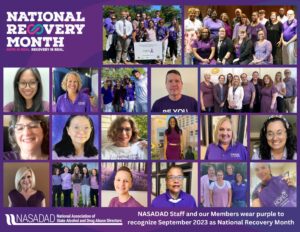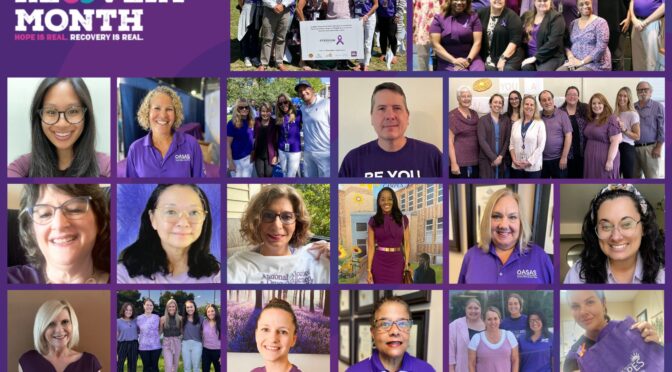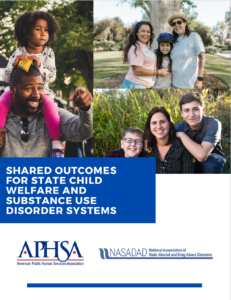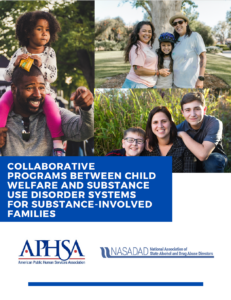On December 13, 2022, the Substance Abuse and Mental Health Services Administration (SAMHSA) published a Notice of Proposed Rule Making (NPRM) to revise the regulations governing the accreditation and operation of opioid treatment programs (OTPs), clinics that are specially authorized to use methadone as a treatment for opioid use disorder (OUD). These are the most significant revisions to these regulations since 2016, and reflect experience gained from waivers and exceptions granted during the Public Health Emergency, as well as a need to expand access to medication for opioid use disorders (MOUD) due to the ongoing rising epidemic of opioid overdose deaths. The proposed regulations underscore support for the provision of comprehensive individualized treatment services for individuals receiving treatment in OTPs.
To understand the potential impact of the NPRM, NASADAD worked with State Directors and the Opioid Treatment Network (OTN), a NASADAD component group of State Opioid Treatment Authorities (SOTAs). NASADAD staff hosted meetings with the OTN Executive Committee and the Board of Directors Policy Committee to develop a response to the proposed rule on behalf of the Association. The response was submitted on February 14, 2023.
Below are highlights of the proposed regulations and NASADAD’s corresponding comments to the rule:
- NPRM proposal regarding take-home medications. Under the Public Health Emergency, SAMHSA issued guidance allowing states to permit considerable flexibility to OTPs in providing take-home medication to patients to reduce patient and staff exposure to COVID-19. These flexibilities allow less stable patients to take home up to 14 days of medication and more stable patients to take home up to 28 days of medication. The proposed regulations would allow up to seven days of take-home medication during the first 14 days of treatment, up to 14 days of take-home medication after the 15th day of treatment, and after 31 days of treatment, the patient could be allowed to take-home medication for 28 days.
NASADAD comments. NASADAD noted that the proposed schedule for take home medications is more liberal than the schedule permitted during the Public Health Emergency (PHE), and while the PHE flexibilities were evaluated regarding safety and efficacy, the proposed schedule has not been evaluated. NASADAD recommended, therefore, that each patient be evaluated for their ability to safely manage take home medications and that this evaluation be documented in the patient’s clinical record.
- NPRM proposal regarding admission restrictions. The proposed regulations would remove both the requirement that a person be addicted at least one year before admission, and the prohibition against treating individuals under the age of 18 without two documented unsuccessful attempts at short-term detoxification or drug-free treatment within a twelve-month period. The proposed regulations would replace these restrictions with requirements that are focused on medical assessments, and in the case of a person younger than 18 years of age, the proposed rule would require approval by a parent, guardian, or relevant state authority unless state law specifies that their approval is not needed.
NASADAD Comments. NASADAD strongly supported these changes, as they focus on specific needs of individual patients during a time of unprecedented risk of addiction or overdose.
- NPRM proposal regarding initiation of medication, screening and assessment. Under the proposed regulations, patients could begin utilizing medication for opioid use disorder (MOUD) after a screening (before the assessment is completed), and both the screening and the assessment could be provided by a non-OTP practitioner, provided that the OTP practitioner verified the screening and assessment. The proposed regulations describe the elements that must be included in a screening or assessment, and under certain conditions, these could be provided by audio-visual telemedicine or by audio device.
NASADAD Comments. NASADAD shared a concern that non-OTP practitioners may lack necessary knowledge to adequately assess opioid use disorders. In addition, the OTP practitioner may not have reviewed outside screenings and assessments before initiating the medication. We noted that many of our members are actively working to enhance the knowledge of community providers, such as Federally Qualified Health Centers and emergency room bridge programs. NASADAD recommended that the final regulation include a requirement that the OTP Medical Director, or his qualified proxy, document in the clinical record that the written patient evaluation conducted by a non-OTP practitioner has been reviewed and approved within a reasonable time period after initiating medication.
NASADAD also expressed that using audio-only devices to screen new patients for MOUD should be the exception, and only allowed in situations where there is a lack of access to in-person or telehealth assessment. NASADAD recommended that these situations should be documented in the patient record and examples should be provided in the final regulations. In addition, NASADAD recommended that the written assessment be verified by the OTP Medical Director within a reasonable time of initiating medication.
Several definitions were added, eliminated, or revised, including the following:
-
- The proposed definition of Practitioner would include mid-level practitioners.
- The term medication-assisted treatment would be replaced by the term medication for opioid use disorder.
- The terms detoxification treatment, maintenance treatment, and opioid agonist treatment were eliminated.
- New terms proposed to be added include behavioral health services, care plan, continuous treatment, and harm reduction.
NASADAD Comments. NASADAD concurred with the changes to the definitions, with the exception of the addition of the term “behavioral health services,” which was defined very generally with no to reference to substance use disorders or recovery support services in OTPs. NASADAD recommended that the final regulations include specific definitions for mental health services and substance use disorder services, and that recovery support services be included in these definitions.
In summary, NASADAD was pleased to provide input on these important proposed rule revisions and look forward to working with SAMHSA to implement the final rule.
Download (PDF, 258KB)



